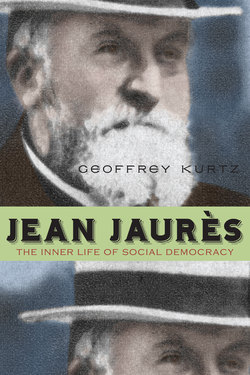Читать книгу Jean Jaurès - Geoffrey Kurtz - Страница 12
На сайте Литреса книга снята с продажи.
Оглавление2
DEMOCRACY UNFROZEN
Jaurès successfully defended his two theses and was granted his doctorate in philosophy in February 1892.1 A few months later, coal miners in the Tarn town of Carmaux went on strike. Jean-Baptiste Calvignac, an officer in the miners’ union, had been elected mayor; he asked the mining company for two days’ leave each week to attend to his duties; the company refused and then fired him when he took the time anyway. The miners struck, demanding his reinstatement and insisting on his right to serve in public office. Jaurès pushed for arbitration, and when the company would not concede, he toured France to raise money for the strikers. The strike dragged on for months before the company submitted to the union’s arbitration request.2 In the wake of the strike, the Carmaux socialists asked Jaurès to be their candidate in a January 1893 special election for a seat in the Chamber of Deputies. He accepted, based his campaign on the platform of the Parti ouvrier français, and won the election handily. Returning to the Chamber as one of only a dozen socialist deputies, he arrived on the eve of a change for which most French socialists were not prepared.3
Through a coordinated campaign unlike any they had previously mounted and with backing from members of France’s growing labor movement—trade unions had tripled their membership since the previous parliamentary elections4—French socialists achieved by far their best results yet during the general elections in the autumn of 1893. They won some 600,000 votes, ten times the socialist tally in 1881, and their representation in the Chamber grew to fifty members.5 Their electoral allies, the Radicals of the republican Center-Left, increased their numbers as well, although not so dramatically. A reluctant alliance between the more conservative republicans (now often referred to as “Progressists” rather than “Opportunists”) and the remnants of the old monarchist groups still dominated the Chamber, but now the combined Radical and socialist opposition was stronger, with socialists making up nearly one-third of that opposition.6 The French socialists were no longer a specter haunting the powerful. They were a substantial political force within the parliament of a republic.
This was a situation in which no socialist party had ever found itself. As a protest movement defined by what it was against, nineteenth-century socialism naturally spoke in terms of opposition and abolition. What would French socialists do now that they had enough power to influence the society in which they lived, but not nearly enough power to demolish and replace it? To some, their old manner of making a stark contrast between the capitalist present and the communist future seemed less useful than it once had been. Jaurès would find an interested audience for his notions of mixing opposites, of reconciling incompatibles, of battles neither lost nor won.
